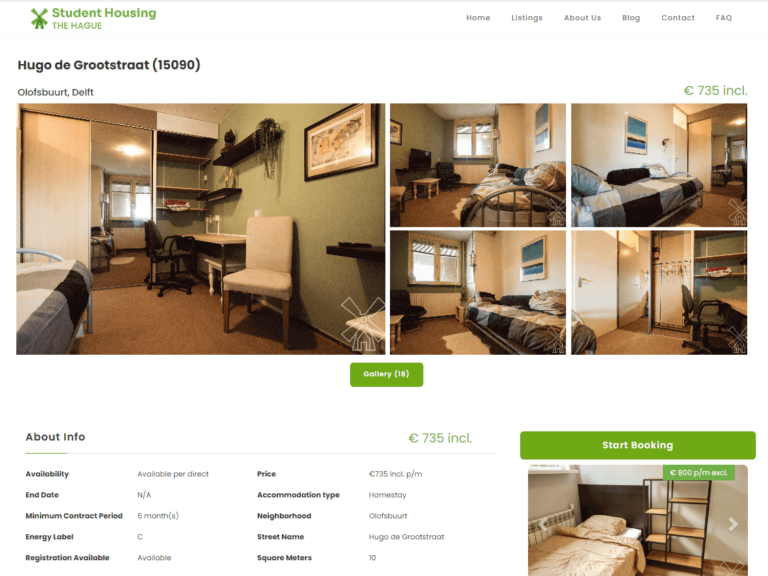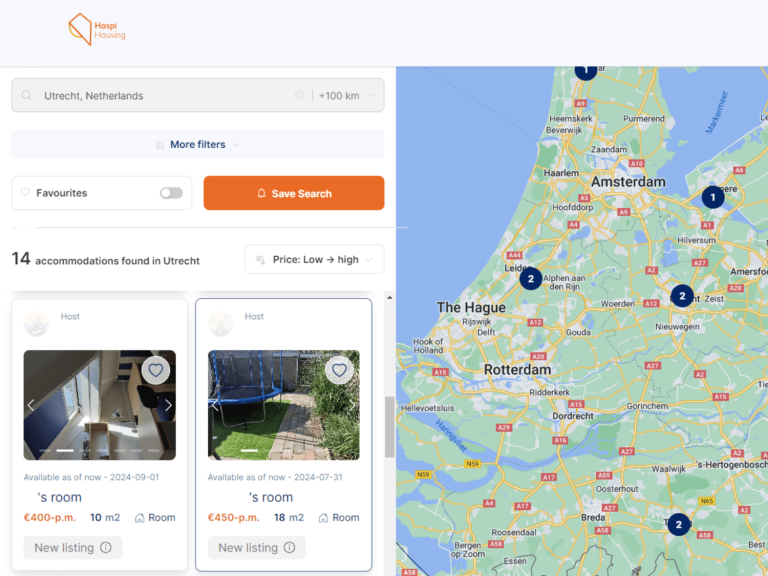All You Need to Know About Renting a Homestay Room in the Netherlands

As a former international student in the Netherlands currently working in the student housing industry, I understand the challenges and uncertainties that international students face when seeking accommodation. One unique option that often flies under the radar is homestay living, where you reside with a host or a host family. When it comes to homestay rentals, there are many aspects to take into consideration, especially your rights to rental protection. In this blog, I will delve into what you, as international students, should know about homestay rental in the Netherlands.
What is homestay in the Netherlands?
Homestay in the Netherlands involves renting a private room within the host's home. Referred to as a "hospita" in Dutch, the host not only rents out a room but also resides within the property, either alone or with their family. Acting as both landlord and resident, the host maintains control over the rental arrangements, deciding whom to rent to and for how long. This type of arrangement not only offers a roof over your head, but also a chance to immerse yourself in Dutch culture.
Rental protection considerations in homestay living
Rental protection helps tenants by preventing landlords or property owners from ending rental contracts without agreement. Unlike traditional rental agreements, the first nine months of a homestay rental contract are considered a trial period. If the host does not find a match in the living arrangement with you, they can end the rental contract within the first nine months without specifying reasons. However, they must give you a three-month notice in writing, providing you with time to find alternative accommodation. If the host does not terminate the agreement within the first nine months, they lose the ability to terminate without reason. After this period, you, as the tenant, gain full rental protection, making it more challenging for the host to terminate the rental agreement.
If your host is a tenant in the property, you may not have rental protection if the lease between your host and the main landlord ends. In such cases, if the main landlord terminates the agreement with your host, they are not obligated to continue your tenancy. Therefore, if your host's tenancy ends, your tenancy also ends.
Tips for renting a homestay room
- Be honest and avoid misrepresentation about yourself: Since you'll be living with the landlord, honesty is key. Be transparent about your habits, preferences, and lifestyle. While the housing market may be competitive, it's important not to exaggerate or misrepresent yourself to secure accommodation. I've witnessed some students make this mistake, which can lead to a mismatch and even termination of the contract within the first nine months.
- Learn about the host: Take the time to understand your host's preferences, living situation, and expectations. Some hosts prefer a high level of interaction, while others value privacy. For instance, if your host enjoys socialising with tenants, but you prefer solitude and personal activities, it may not be a good fit.
- Communication is key: If you're encountering difficulties with your host or feeling uneasy about your living situation, communication is key. However, the manner in which you address the issue is crucial. Approach the conversation with patience and a genuine desire to reach a mutual understanding.
- Respect the house rules: Every household has its own set of rules and norms. Respect these rules to foster a positive relationship with your host and other residents.
- Prepare for cultural differences: Living with a host offers a unique opportunity to immerse yourself in Dutch culture. Embrace cultural differences and be open to learning from your host's customs and traditions.
Finding homestay accommodations in the Netherlands
Although you may stumble upon hosts renting out rooms in their homes on platforms such as Facebook and Kamernet occasionally, there are dedicated platforms that cater to this niche housing option. Specifically, platforms like Hospitaworden.nl and Hospi Housing specialise in connecting students with potential hosts across different cities in the Netherlands.
Hospitaworden.nl (in Dutch) operates by providing comprehensive support directly to hosts, including administrative, financial, and legal assistance. If you encounter hosts offering rooms, it's advisable to verify whether they have the necessary permits to rent out rooms and if registration with the municipality is possible. You can then refer them to Hospitaworden.nl, ensuring that an agency verifies the host’s eligibility, oversees the entire tenancy agreement process and remains involved throughout.

Hospitaworden.nl primarily focuses on serving The Hague, Delft, and their surrounding areas. Their listings are featured on Student Housing The Hague and you can apply without being charged an agency fee, because they work for and represent the hosts/landlords (see how to reclaim illegal agency fees). Additionally, if you're seeking housing in this region, you can also explore traditional student accommodation options available on this platform.

Meanwhile, Hospi Housing specialises in homestay listings and operates nationwide, collaborating with various municipalities to promote homestay options. With Hospi Housing, signing up on their platform is free, allowing you to browse and respond to host listings without any initial charges. You can engage with hosts as much as you want until you find a suitable match. However, Hospi Housing will charge you a fee of €295 when you successfully finalise a rental agreement and sign the contract on their platform.
